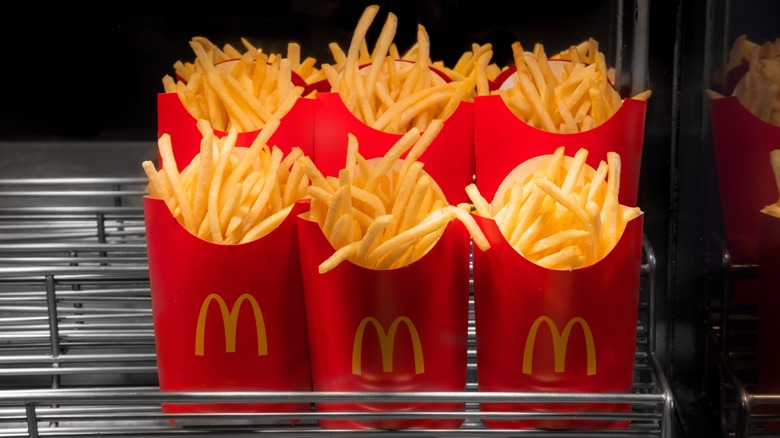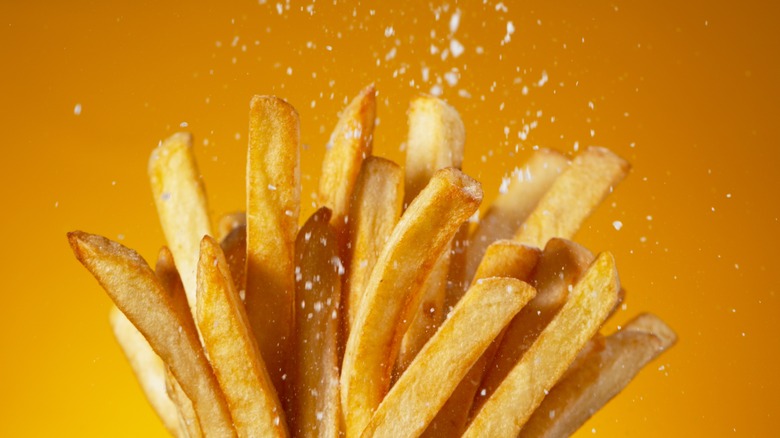Don't Believe This McDonald's Fry Rumor
Over the years, McDonald's fries have come under fire many times for one reason or another. In August 2023, an Instagram reel claimed that McDonald's fries use salt containing three ingredients: sugar, aluminum salt, and, well, salt. The video has since received more than 238k likes, with thousands of comments adding to the rumor that such ingredients can cause neurological disorders over time.
To be fair, the McDonald's website states its iodized salt packets contain sodium silicoaluminate and dextrose. However, it's worth noting that the nutrition facts do not list any added sugar, and Morton Salt, the brand used by many McDonald's franchises, confirms that the amount of dextrose present in table salt is so minimal that it's "dietetically insignificant." Dextrose is only added to help extend the salt's shelf life.
As for sodium silicoaluminate, this compound is composed of sodium, silicon, aluminum, and oxygen and is used to prevent clumping in products like table salt. Although listed among the ingredients in McDonald's salt, it is not included in the nutrition facts. Per FDA regulations, sodium silicoaluminate may be present at a level of up to 2%, but if present in such "insignificant amounts" that it rounds down to 0%, manufacturers can declare the ingredient without providing an exact measurement.
A little bit of salt on McDonald's fries is not going to hurt you
Of course, the decision of whether or not you eat at McDonald's is up to you. However, per the Environmental Working Group, sodium silicoaluminate ranks very low in terms of potential harm to humans. Sodium silicoaluminate is used in many other aspects of everyday life, from water treatment plants to laundry detergents to cosmetics and even medications. It's also a common ingredient in baking soda, spreadable cheese, and (you guessed it) table salt due to its anti-clumping properties.
Although this compound could cause illness when consumed in large amounts, InChem research shows that even a dosage of 10% causes little more than increased water intake and white blood cell count and a slight decrease in kidney weight. Again, sodium silicoaluminate in food is never included at more than 2%, with many products containing it only at a 0.1% level. Realistically, unless you have a pre-existing sensitivity to sodium silicoaluminate, the salt on your McDonald's fries isn't going to do anything more than add flavor.

